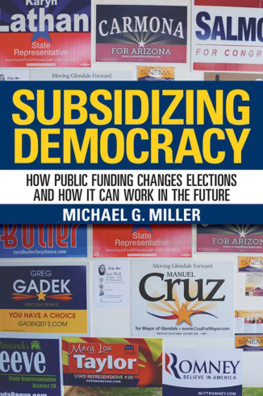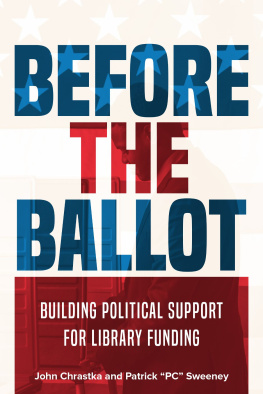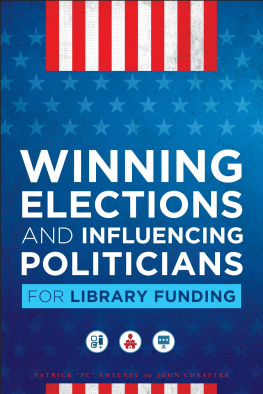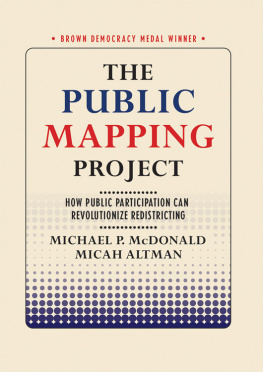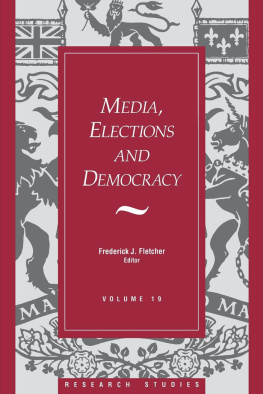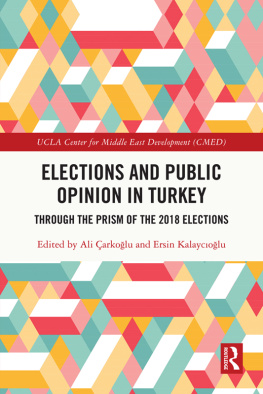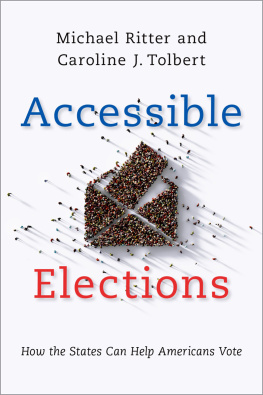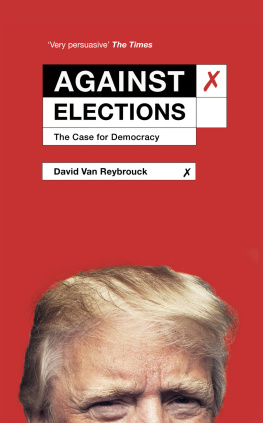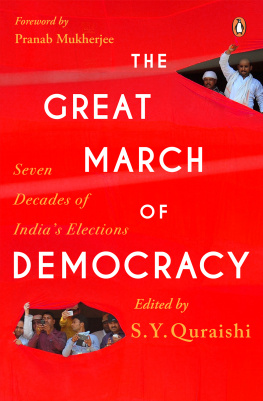ACKNOWLEDGMENTS
This book began as a research project in the Department of Government at Cornell University, and though I swore to never think about it again when I finished, here we are. I am extremely pleased that the book has returned home to Cornell University Press for its publication, since the Cornell community was so important to its development. Suffice it to say that this book was a long time in the making, and I have accordingly incurred a long list of people who were integral in producing it. Nonetheless, it goes without saying that while the people named below made the project possible, the responsibility for all errors or omissions, should they present themselves herein, rests solely with me.
I know that it is customary for reasons of convention or style to acknowledge ones professional debts first and familial debts second, but I cannot in good conscience follow that template. I went to graduate school at the urging of my best friend and spouse, Laura Miller, who recognized that the academic life was the only one that would give me a sense of proper place. Without her constant support and willingness to uproot our family (three times), none of this would have been possible. My children, Carli, Landon, and Ava, have also borne some cost along the way. Most of these words were written with a child under my chair, and I fear that I have said the woeful phrase just a second a few too many times during the process. I thank them for their patience. Finally, my mother, JoAnn Miller, and father, Gary Miller, have been unwavering in their support of this and all my endeavors, and their willingness to indulge my intellectual curiosity from a young age placed me on this path. For my familys separate and collective sacrifices on my behalf, I am endlessly grateful.
Walter R. Mebane Jr. deserves to be at the top of the list as well. I went to Cornell to work with Walter because I believed that his scholarship was the finest example of rigorous quantitative political science on substantive topics that mattered. The intervening years have not only deepened this belief but have also yielded crucial lessons about the huge investment that a good mentor is willing to make in his students. Walter ably guided the project from pilot to completion, reading and rereading chapter drafts, and it seemed he was always a step ahead of me. It still seems that way. This book would not have happened without Walters guidance. I owe him a bottomless debt that I will most assuredly pay forward, and I am proud to call him my friend. I am also deeply grateful to others at Cornell, each of whom provided crucial guidance: Theodore J. Lowi, Suzanne Mettler, Peter Enns, and Christopher Anderson. I also thank Sherry Martin, who helped to shape the project at its formative stages during two graduate seminars, as well as my fellow Cornell graduate students for friendship, support, and commiseration throughout the writing process.
The National Science Foundation was kind enough to fund the bulk of this project via a Dissertation Improvement Grant (SES-0819060), and where necessary, the Department of Government (via the personal generosity of Professors Mebane and Lowi) and the Department of American Studies at Cornell took up the financial slack. Judy Virgilio and Jackie Pastore were instrumental in helping to prepare the NSF grant application, which Laurie Coon ably administered. It is not a stretch to say that this project would never have been possible without the generosity of these benefactors, particularly the NSF. Their funding allowed for the fieldwork and data collection described herein, much of which was aided by what came to be called Team America, a dedicated group of undergraduate research assistants at Cornell who worked tirelessly on data collection in 2007 and/or 2008: Erin Nuzzo, Tom Hudson, Zach Newkirk, Rebecca Dittrich, Chris Martin, Ben Gitlin, and Rob Morissey.
Parts of Chapter 7 originally appeared as an article in the July 2008 issue of PS: Political Science and Politics , and I thank Cambridge University Press for allowing it to reappear here. The Graduate School and the Department of Government also funded travel to a number of conferences at which this research was presented, critiqued, and subsequently improved. Various components of this book or its pilot study appeared at meetings of the American, Great Plains, Midwestern, New England, Northeastern, and Southern Political Science Associations. In their capacity as discussants, Clifford Brown, Dino Christenson, Dean Spiliotes, Christopher Larimer, and Kevin Wagner were most helpful.
Others who had neither institutional nor service obligations read parts of the book and offered critical advice at various stages (even though some no doubt will not recall doing so today). For going above and beyond, I thank Dan Butler, Bhavna Devani, Conor Dowling, Peter Francia, Danny Hayes, Paul Herrnson, Luke Keele, Ray La Raja, Kenneth Mayer, Seth Masket, Costas Panagopolous, Robert Shapiro, and Sophia Wallace. Finally, my friends Nick and Angie Behm allowed me to turn their Phoenix house into a base of operations during Arizona fieldwork in early 2007; I probably earned my nickname Dupree in those two weeks. I thank them for opening their home, and apologize for my cooking.
The state agencies of Arizona, Connecticut, and Maine were most helpful when I needed data or clarification, but two individuals deserve special recognition. Mike Becker at the Arizona Clean Elections Commission collected and provided special data at my request, and Kristin Sullivan in the Connecticut Office of Legislative Research navigated a tricky state bureaucracy to track down elusive precinct returns from that state.
My colleagues and students in the Department of Political Science and the Institute for Legal, Legislative, and Policy Studies at the University of Illinois, Springfield, were both a source of support and a sounding board as the project developed into this book. Richard Gilman-Opalsky, Christopher Mooney, Jason Pierceson, David Racine, and John Transue offered advice in this phase; they, along with the rest of the Department of Political Science at UIS, have also been strong professional mentors and good colleagues. I also appreciate the patience of my students, all of whom listened (often as a captive audience) to new ideas as they developed, and some of whom also provided assistance in data cleaning and manuscript formatting. Jennifer Carter, Jessica Luigs, and Meagan Musgrave deserve special recognition here. Both the UIS College of Public Affairs and Administration and the Institute for Legal, Legislative, and Policy Studies contributed by defraying the publication costs of the book, and I am thankful for their support.
Finally, I wish to thank the editors, staff, and faculty board at Cornell University Press, as well as two anonymous reviewers whose work greatly improved the project. Michael McGandy believed in the project early and has proven to be a brilliant editor. His guidance has been invaluable, and he is absolutely the most important contributor to this project whom I have never met in person. I hope to change that soon. Sarah Grossman, Ange Romeo-Hall, and Kim Vivier guided the manuscript to final form. They deserve commendation for their patience. I also thank Dina Dineva for indexing the book.
The old saying goes, Choose work you love and you will never work a day in your life. Because of the investments made in me by the people named above, I have yet to put in a days work on this project. Thank you all.

